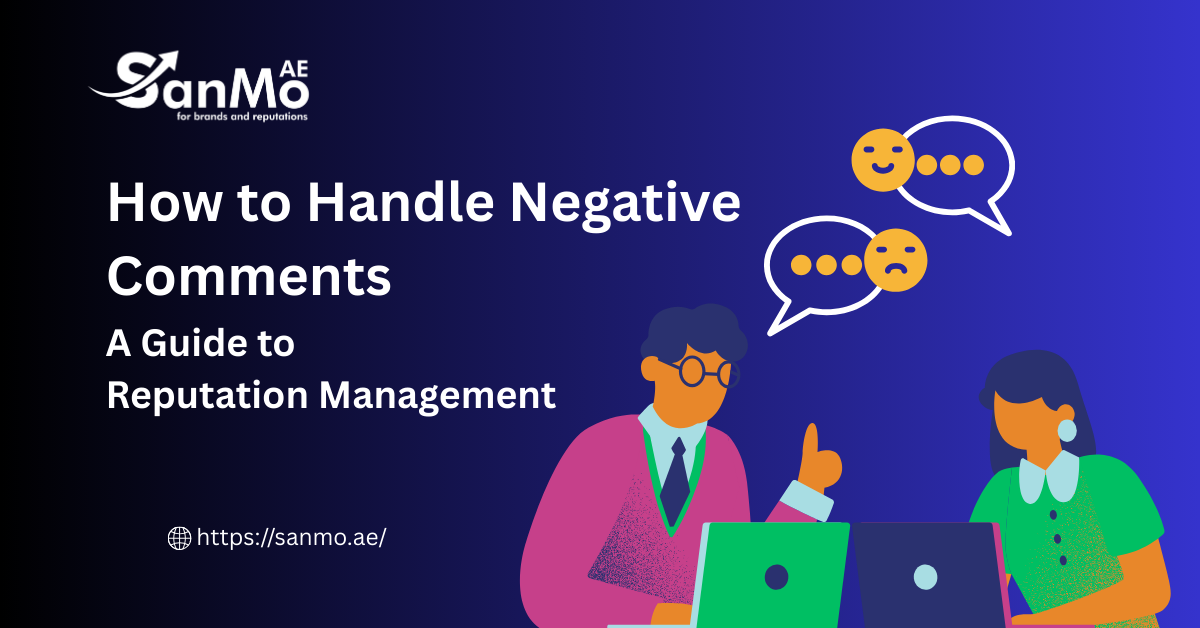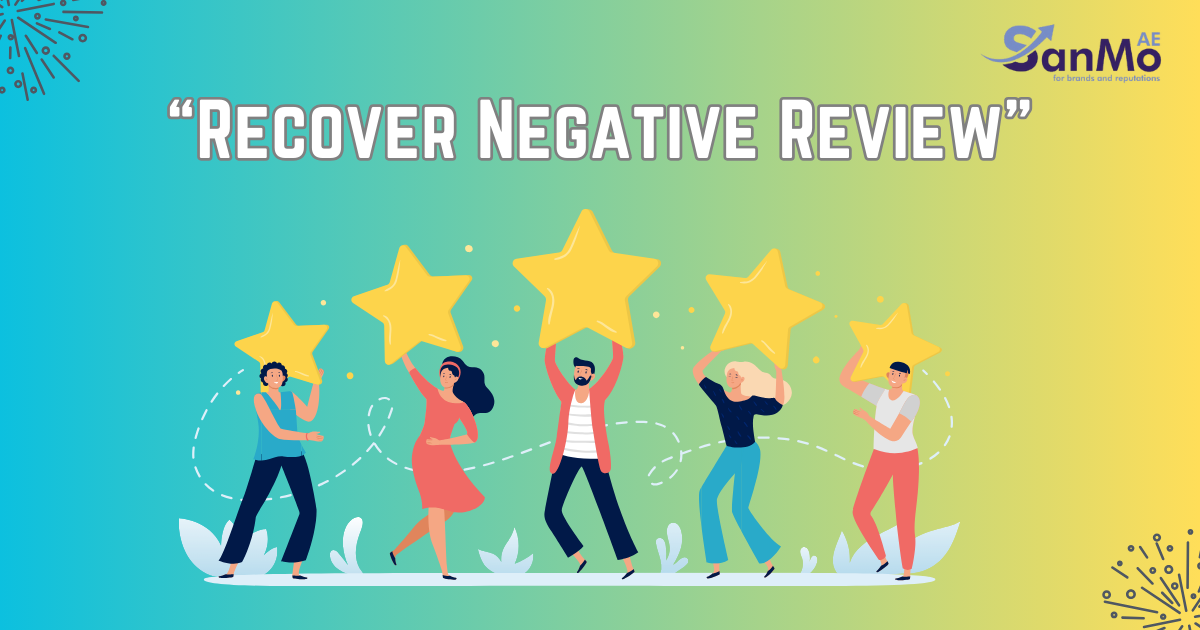Reputation management is the process of monitoring, influencing, and maintaining an individual’s or organization’s reputation. Controlling search engine results, social media mentions, and online reviews is necessary to project a positive image. Influencing stakeholder opinions and public conversation is part of managing an organization’s and its brands’ reputations. It entails monitoring comments and discussions, responding to any reputational risks, and proactively grasping opportunities to enhance and strengthen brand reputation.
Why is reputation management important?
A reputation management handbook is necessary to build credibility and trust in today’s fast-paced digital environment. By closely monitoring public sentiment and reacting to criticism, brands may effectively shape their audience’s perception of them. This strategy goes beyond just responding to negative remarks; it is a compelling, positive narrative that aligns with the brand’s values, actions, and goals. Reputation management ensures that a brand’s key characteristics and values are consistently communicated in order to preserve a positive image and develop a loyal customer base. It also makes it easier for companies to respond swiftly to potential reputational issues, turning setbacks into opportunities for growth and transparency. Consumer trust, competitive distinctiveness, and long-term brand success in today’s market all depend on a well-managed reputation strategy.
The respect or admiration that has been gained over time via consistent performance, behavior, and character is often reflected in the reputation of an individual, company, or brand. This perspective is shaped by past deeds, achievements, and values demonstrated. A strong reputation is a huge advantage when it comes to how people relate to, trust, and respect a person or brand. A company’s reputation usually reflects its dependability, quality, and excellence. For example, a business may build a global reputation for excellence via its exceptional products and services, which will increase client loyalty and trust. Similarly, professionals who are respected for their skill, integrity, and dedication—such as a doctor renowned for her expertise and compassionate care—are highly regarded.
In today’s digital world, social media, online reviews, and public debates are all having an increasing impact on online reputation management. Because positive impressions may boost credibility and influence while negative ones may impede success, proactive reputation management is essential. A positive reputation facilitates more possibilities, stronger relationships, and the capacity to overcome disappointments.
Why does a company’s reputation matter?
Companies with a strong reputation are more likely to attract top talent and customers. A solid reputation indicates dependability, honesty, and quality, all of which make a company more appealing to potential employees. Expert professionals who work for companies known for their moral conduct and commitment to excellence are likely to find a happy and satisfying workplace. The company’s position in the market may be strengthened by this talent inflow, which can enhance overall performance, productivity, and innovation.
Additionally, businesses that have a good reputation for giving their clients value. They are able to charge higher costs for their goods and services because of this notion. Because they believe that superior quality merits the additional expense, consumers are often prepared to pay more for brands they trust. Financial stability and higher profit margins may result from this pricing power. Another important advantage of having a good reputation is customer loyalty. Happy consumers will stick with a brand, recommending it to their networks and making more purchases.
Because devoted customers frequently serve as brand ambassadors, spreading the word about the company through recommendations, this loyalty lowers marketing expenses. By promoting alliances and teamwork, a favorable reputation may help businesses expand. Reputable companies are more likely to be approached by other companies and stakeholders, which opens up new doors and growth paths. In conclusion, businesses that build and preserve a good reputation benefit from increased client loyalty and the capacity to charge higher prices. In the end, this positive feedback loop of loyalty, value, and reputation promotes long-term success and expansion in a cutthroat industry.
Two categories of reputation management exist.
Reputation management techniques can be proactive or reactive, and both play essential roles in creating a strong strategy to enhance and safeguard a brand’s reputation. Proactive techniques focus on establishing and promoting positive brand perceptions, such as sharing success stories, engaging with audiences, and building brand credibility. Reactive techniques address reputation risks as they arise, such as responding to negative feedback or resolving customer concerns swiftly and effectively. By combining these approaches, brands can strengthen their positive image and mitigate potential issues, ensuring a well-rounded reputation management strategy that supports long-term brand trust and loyalty.
The Reputation Management Approach
The strategic process of influencing how the public views a company, with an emphasis on establishing credibility, trust, and a favorable brand image, is known as reputation management. It includes everything from actively influencing how the brand is perceived across many contact points to keeping an eye on and reacting to internet reviews. Since views can be readily shared and accessible in the current digital era, reputation management has become crucial for companies looking to preserve and improve their position in a cutthroat market.
important websites where social media discussions, reviews, and ratings take place. Businesses may show their dedication to client satisfaction and responsiveness by monitoring these conversations and addressing possible problems before they become more serious. Quick, considerate answers to both positive and negative reviews are essential because they demonstrate that consumers’ opinions are valued and provide a chance to reaffirm brand principles.
Effective reputation management entails proactive measures to influence public opinion in addition to responding to criticism. This might be highlighting activities that demonstrate the brand’s dedication to ethical and high-quality processes, releasing consumer testimonials, or publicizing success stories. Teams in charge of marketing and customer service are essential since their work has a direct influence on how consumers perceive and feel about the brand.
Additionally, reputation management is not only a reactive procedure. It involves a proactive approach that incorporates strategies for potential reputational risks. For instance, a brand may offer staff training on customer service best practices or engage in community service projects that reflect its values. Such actions cultivate goodwill and establish a foundation of trust.
In the end, reputation management is a continuous procedure that calls for regularity and an emphasis on enduring connections. Businesses may build a strong, enduring brand presence, improve customer connections, and cultivate loyalty by actively managing reputation.
Strategies for Reputation Management
In today’s digital world, reputation management techniques are crucial for influencing how people see your company. Businesses now have more tools than ever before to have a strong online presence because to the introduction of social media, digital marketing, SEO, and content production.
to successfully increase brand recognition. Make sure the brand is readily found and linked to relevant keywords by beginning to optimize your website and content for search engines. Creating captivating, high-quality content that appeals to your target audience may help you become an authority in the field in addition to increasing brand awareness.
Social media is essential for reputation management because it allows you to actively interact with your audience and build loyalty and trust. You may build a community around your business by consistently posting insightful information, answering questions, and taking swift action to resolve issues. Using client endorsements and case studies may also help you establish credibility and highlight your accomplishments.
It’s equally crucial to keep an eye on your internet reputation. Make use of technologies to monitor brand mentions on many platforms so you can quickly and efficiently respond to unfavorable comments. You may greatly improve your brand’s reputation by putting these tactics into practice, which will increase client loyalty and business expansion.
A reputation management tool: what is it?
A reputation management tool is a crucial piece of software that helps companies keep an eye on, assess, and react to their internet presence. These technologies are essential for preserving a favorable public image in the fast-paced digital environment we live in today. They let companies to monitor what is being written about them on a variety of channels, such as forums, social media, and review websites.
Monitoring sentiment and internet mentions is one of the main purposes of reputation management solutions. These technologies assist find trends in consumer feedback and offer insights into public opinion by combining data from various sources. By taking a proactive stance, companies may identify any problems before they become more serious and respond quickly to unfavorable remarks or evaluations.
Furthermore, these technologies frequently have sentiment analysis capabilities, which help companies better understand how their brand is viewed. Organizations may use sentiment analysis to assess the success of their public relations and marketing campaigns and make the required changes to improve their standing.
Additionally, reputation management systems make it easier to interact directly with clients. They frequently have tools that let companies reply to reviews and comments instantly, encouraging openness and a feeling of community. This interaction shows a dedication to client pleasure and helps to counteract unfavorable comments.
To sum up, reputation management technologies are essential for companies looking to build a solid online reputation. These resources support long-term success and protect a brand’s image.
What is a reputational risk?
The possible danger to one’s reputation or position is known as reputational risk. This risk has the potential to seriously affect an organization’s success, reputation, and clientele. There are two main ways that reputational risk might appear: directly and indirectly. For example, unethical corporate activities, subpar customer service, or unsuccessful products can erode consumer trust and impact public reputation. These behaviors may lead to monetary losses, a decline in market share, and difficulties bringing in new clients.
Conversely, indirect reputational risk frequently results from the actions of the organization’s stakeholders or workers. For instance, even if the firm is not directly engaged, it may reflect adversely on the entire corporation if an individual employee participates in unethical behavior or makes contentious remarks. This risk is increased by social media, as unfavorable events may spread swiftly and harm a brand’s reputation.
A strong crisis management plan, personnel training, and efficient communication must be given top priority by organizations. Businesses may protect their brand and keep the confidence of their stakeholders and consumers by cultivating a culture of responsibility and openness.
What advantages does reputation offer?
Trust and commercial connections are far more likely to be developed by people and organizations with a good reputation. Customers are more inclined to interact with and invest in a business when it has a solid reputation since it gives them confidence. This trust improves total market presence and results in enduring consumer loyalty.
Furthermore, having a positive reputation serves as a catalyst for drawing in worthwhile chances. Companies that are known for their honesty and quality are more desirable to possible investors, partners, and collaborators. Businesses with a track record of forming strategic connections can promote development and creative ideas.
Furthermore, top personnel deliberately search for companies with a good reputation because they think they will find lucrative and encouraging work conditions there. This inflow of talented workers boosts a business’s potential and stimulates creativity and output. A solid reputation is a valuable asset that leads to long-term success, opportunity, and trust.
Managing one’s reputation is a continuous endeavor that calls for constant focus, consideration, and calculated action. Information may influence a brand’s future and help it retain a more favorable reputation than ever before in the digital world of today, when consumer opinions are instantly shared. Building trust with your audience is a proactive strategy for reputation management responsiveness and real interaction.
Start by keeping a close eye on internet forums, review sites, and social media sites where consumers post reviews in order to manage your brand’s reputation. You can keep up with public opinion by listening to your audience. Responding promptly and sympathetically to consumer questions or unfavorable comments might transform possible problems into chances to show your dedication to client happiness. This response contributes to the development of a favorable, compassionate brand image.
Reputation management constantly provides benefit in addition to resolving issues. Deliver excellent quality while keeping everything transparent. Positive impressions may be amplified and trustworthiness increased by encouraging pleased clients to write reviews and testimonials.
Reputation management isn’t solely about damage control; it’s about actively fostering a brand image that aligns with your company’s values and resonates with your target audience. A strong reputation enhances customer loyalty, attracts new business, and creates goodwill to sustain your brand through challenging times. In a world where your reputation is one of your most valuable assets, nurturing it will pay off in substantial and lasting ways. Protect and grow, and will remain a powerful force for your brand’s ongoing success.







